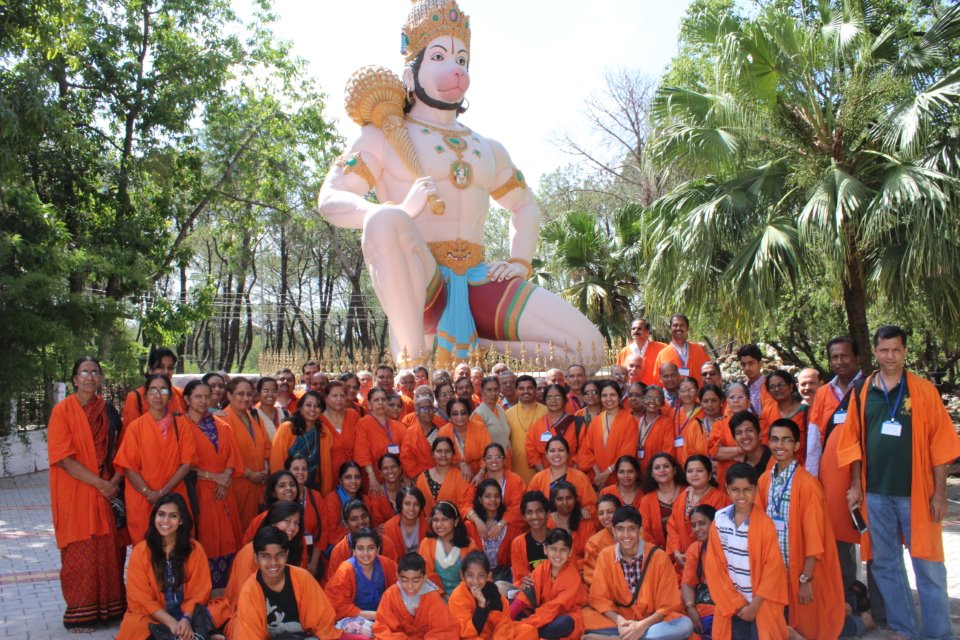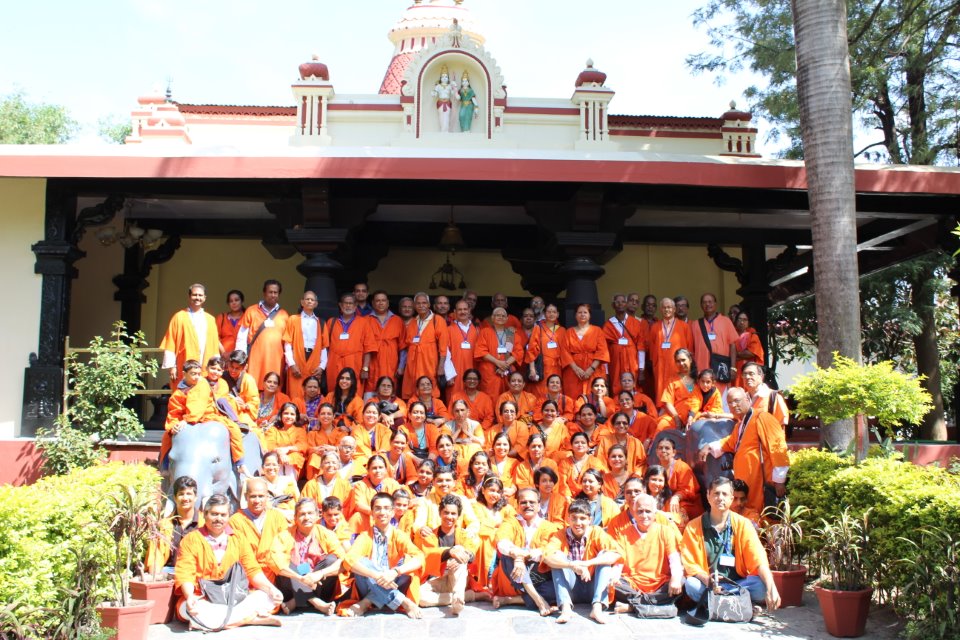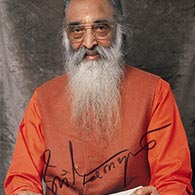In the month of may, like many others, the Chinmaya Mission bhaktas also attended a
(spiritual) camp named “Mukundamala” at Sidhabari Ashram, Himachal Pradesh, Pujya
Gurudev’s Samadhi Sthal. Br. Ved Chaitanyaji conducted this camp from May 21 2016 (Sw.
Puroshottamanandji’s Jayanti Day) to May 26 2016. He gave discourses on the texts
‘Mukundmala’, ‘Panchdasi’ and ‘The Chinmaya Mission Pledge’.
There were almost 100 campers between the age group 8 to 85 years, mainly from Mumbai and
Navi Mumbai, in the backdrop of the majestic Dauladhar Ranges and at the banks of the Bindu
Saras river, attending 5 sessions every day. The day began at 6.00 in the morning with
Gurudev’s aarti and then a session on ‘Panchdasi’ at 7.00 after which the campers would have
their breakfast and attend the next session on Mukundmala at 9.30. At 11.30 there would be an
open session where the most interesting questions were asked and they were very logically
answered by the acharyaji. At 12.30, the campers would disperse for a delicious lunch with
special desserts. This was followed by rest time and thereafter another session on Mukundmala
at 4.15 after the evening tea. From 6.00 to 7.30 campers attended the aartis at the camp site; at
Gurudev’s Samadhi sthal then at the divine Ramji’s mandir, followed by chanting of Hanuman
Chalisa at the Majestic Hanumanji’s mandir. The campers could also do their sadhana or go
out for a short trek to the pine forests and the nearby stream with acharyaji. They would come
back and attend a session on ‘The Chinmaya Mission Pledge’ along with the lively singing of
bhajans by young and old.
In his inaugural session acharyaji very beautifully presented a comparative study of the three
texts that were to be studied during the camp. The text Mukundmala as explained by acharyaji
is a bhakti text. This great work is a celebration of Bhagavad Nama by King Kulashekar Alwar .
Ghushyate Yasya Nagare, Rangayaatraa Dine Dine|
Tamaham Shirasaa Vande, Raajaanam Kulashekharam||
It’s a sincere prayer for unceasing remembrance of the lord at all times and places. It’s a
garland –Mala of versus for Lord Mukunda, the giver of liberation. Throughout the text the
poet displays his intense longing for the Lord and tells us about various ways in which we can
remember Lord. He emphasises on ‘Naam Japa’, ‘Roop Japa’, ‘Gyan Japa’, ‘Dhyan Japa’. Our
acharyaji made the sessions very interesting and lively by quoting anecdotes, telling relevant
stories and references from the Upanishads, and experiences of the mahatmas. The daily
chanting of the verses made the participants familiar with the text.
The next text was ‘Panchdasi’, which is a Gyan Pradhan text. Acharyaji gave discourses on
‘Vivek Prakaran’, the first five chapters dealing with the ‘Sat’ swaroop of Lord. The text written
by Sw. Vidyaaranya was lucidly and very systematically explained by our acharyaji. His
references from the Upanishads, puranas and itihas showed his immense hold on the topic and
the instances he gave of the Mahatmas made the sessions very interesting. In a very scientific
way acharyaji expounded the relationship between Jeev-Jagat- Ishwar. He drove in the fact that
the objective of Vedanta is to make man give up his wrong identification with the body and
realize his true nature ‘The Brahman’.
The next topic taken up in the camp was the ‘Mission Pledge’. Acharyaji explained that
although the pledge was composed impromptu, each of its words were very thoughtfully placed
to bridge the gap between the spiritual texts studied by the mission members and its practical
implementation in life. These sessions were filled with instances of great people and patriots
like Sw. Vivekanandaji, Bal Gangadhar Tilak, Veer Savarkar etc. and examples of great movies
like ‘Legend of Bhagat Sing. They left the audience all charged up and motivated to sincerely
follow the core verbs of the pledge i.e. We stand + bound+ live+ seek + believe + know
+ give as a family.
After the bhakti, gyan and seva sessions the campers would really look forward to the bhajan
sandhyas, so much so that a special bhajan session, after dinner was incorporated on a popular
demand. There were bhajan relays, antakshri and jugal bandi too. The bhajan Dandi pe dandi
by Kantamani amma became the camp anthem and was sung on many occasions during the
camp. The camp concluded with Paduka Pooja performed in the sacred abode of Gurudev in
the auspicious presence of Sw. Gangeshanandaji.
Before the camp commenced a special yatra to Vaishnav Devi Shrine was arranged for all the
bhaktas. Everyone had a midnight darshan of the devi and returned back by morning. The
camp ended with a yatra to the nearby temples and shrines like Kapila Guha, Karmapa
Monastery where a spontaneous display of some of their rituals left everyone enchanted the
final destination for that day was Namgyal Monastery abode of Dalai Lama at McLeod Ganj.
Next day we left early in the morning and visited Chamunda Devi, Vajreshwari devi and Jwala
devi. In the night we reached Pathankot station to take Rajdhani train to Delhi. After having a
sumptuous breakfast at the Delhi Ashram and meeting Sw. Prakarshanandaji, the campers
proceeded to visit Akshardham temple, a marvel of art of culture beautifully depicted in an
area of around 100 acres. Finally we were at Delhi airport enriched with a lifetime experience
and looking forward to next year’s camp.




